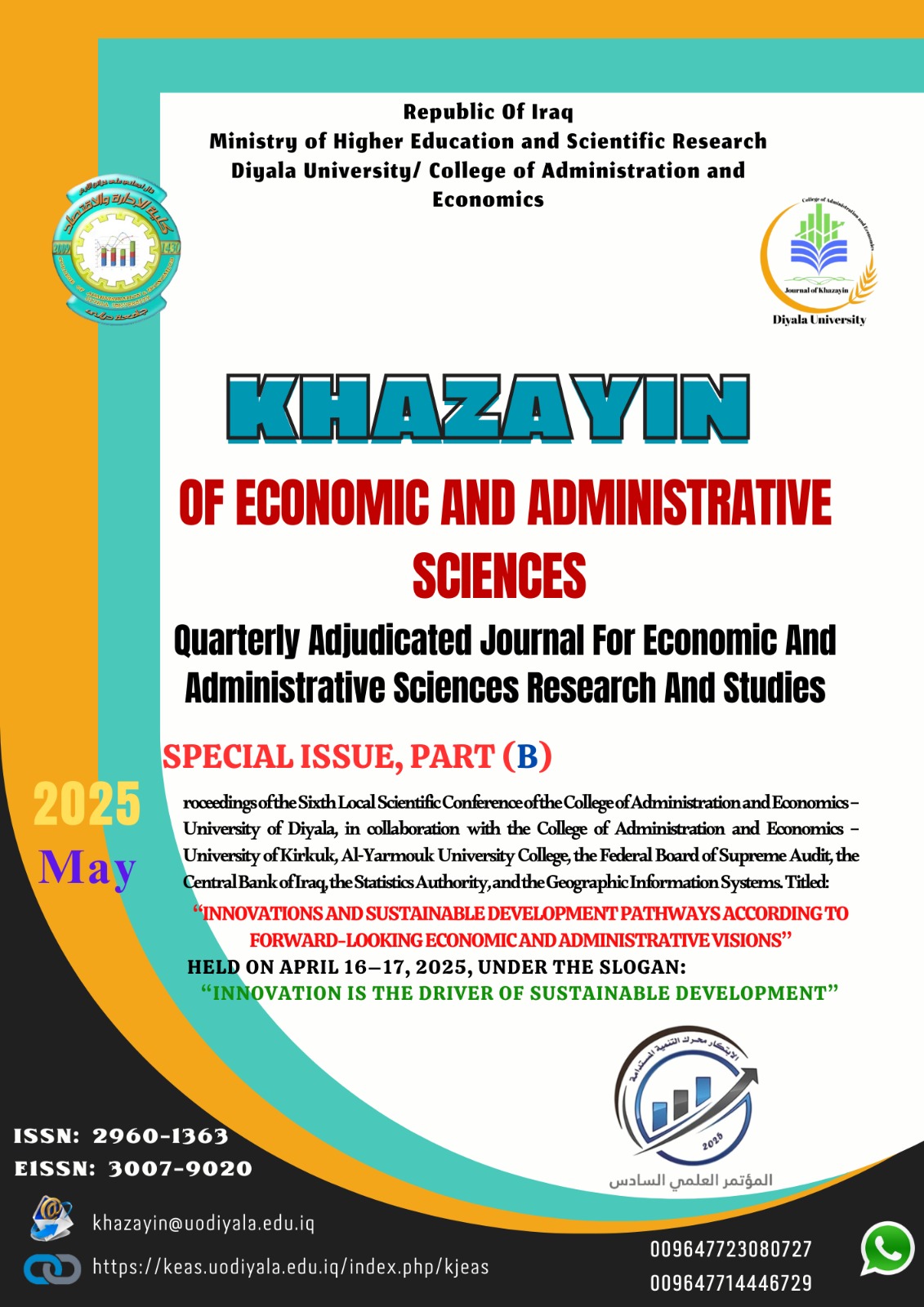The Impact of Artificial Intelligence on Sustainability Accounting Development (Conceptual – Futural Vision Study)
DOI:
https://doi.org/10.69938/Keas.Con2.250221Keywords:
Artificial Intelligence, Technological &Accounting Sustainability DevelopmentAbstract
In recent decades, it has become increasingly important for countries worldwide—albeit to varying degrees—to adopt and benefit from the development plans and programs promoted by the United Nations and its specialized agencies. Among these efforts are the Sustainable Development Goals (SDGs), whose first phase spanned from 2000 to 2015. Despite notable progress, this phase did not fully achieve its intended goals, which necessitated the modification and enhancement of the SDGs for a second phase covering the period from 2016 to 2030. These updates aim to align with global transformations and to realize the )17( SDGs across their three core dimensions: environmental, economic, and social sustainability.
After more than 24 years since the launch of the first phase, the researcher observes that rapid and profound developments have occurred—especially in information technology, data security, network systems, and the emergence of the Fourth Industrial Revolution. This includes the increasing adoption of Artificial Intelligence (AI) technologies, which have significantly impacted organizational and economic landscapes. Accordingly, the researcher proposes the addition of a fourth dimension, namely technological sustainable development, to encompass these advanced digital transformations. Furthermore, from an accounting perspective, it is possible to position accounting as a cross-cutting function within the three original SDG dimensions. Based on this rationale, the researcher introduces a fifth integrated dimension, termed sustainable accounting development, which intersects with all four aforementioned dimensions.
This research is particularly significant as it addresses two contemporary and converging themes: artificial intelligence and sustainable accounting development. It aims to analyze the impact of AI technologies on achieving sustainable development in the accounting field and to evaluate the extent to which current accounting professionals can adapt to technological advancements—particularly in data security, digital transformation, and the shift toward becoming digital accountants.
The study concludes with conceptual insights and forward-looking recommendations, notably the importance of institutionalizing "technological sustainable development" as an independent fourth dimension alongside the traditional triad of sustainability. Additionally, it recommends introducing "sustainable accounting development" as a non-independent, yet integrative, fifth axis that enhances synergy among the dimensions, leveraging AI technologies in accounting and auditing practices to support long-term sustainable development.

Downloads
Published
How to Cite
Issue
Section
License
Copyright (c) 2025 Khazayin of Economic and Administrative Sciences

This work is licensed under a Creative Commons Attribution-NonCommercial 4.0 International License.











